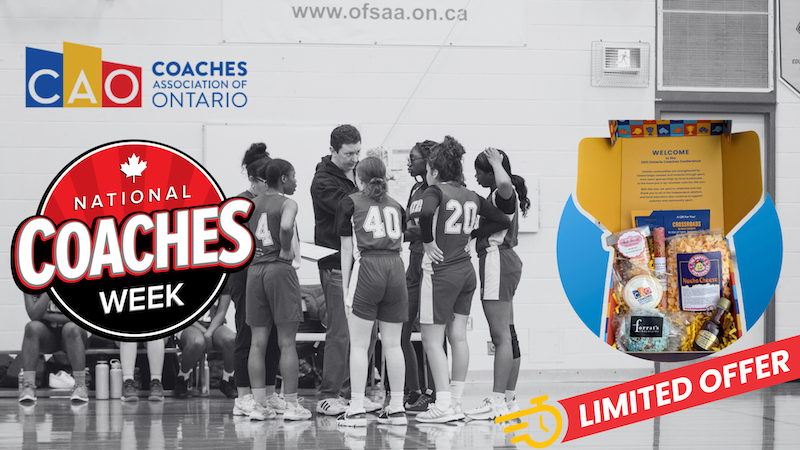Article from SIRC (April 2, 2025)
By Paula Baker
In the world of elite sports, the focus has traditionally been on performance metrics, rigorous training regimens, and strategies for winning. But what if the secret to sustained success lies not just in physical prowess, but in the mind? Enter positive psychology, a field that seeks to unlock human potential by fostering mental resilience, well-being, and personal growth.
Dr. Linda Pagani, a professor at the University of Montreal’s School of Psychoeducation, describes positive psychology as more than just an optimistic outlook.
“The real title should be ‘the science of human well-being and potential,’” she explains.
Unlike traditional psychology, which often centers around diagnosing and treating mental illness, positive psychology focuses on cultivating strengths, coping strategies, and resilience. In the context of sports, this approach can be a game-changer.
Beyond the game: The science of well-being
At its core, positive psychology is about identifying and amplifying the traits that help individuals thrive. “It’s about character strengths, recognizing what’s in our control, and learning to match coping strategies with perceived stressors,” says Pagani. In a high-pressure environment like competitive sports, athletes often face moments of self-doubt, anxiety, and mental fatigue. Traditional sports psychology has long addressed these issues through techniques like visualization, self-talk, and mindfulness. Positive psychology, however, adds another dimension, it actively encourages athletes to focus on growth rather than just results.
Pagani emphasizes that the role of the present moment is crucial. “Positive psychology places a great emphasis on being in the now, it’s more important than the past or future,” she says. For athletes, this mindset shift can be transformative. When performance anxiety creeps in before a major event, gratitude can serve as an anchor. “I tell my athletes, when you start to lose the thread, focus on something you’re grateful for,” she explains. “Gratitude brings you back to the moment.”
From winning to growing: A shift in perspective
The traditional athlete’s mindset is often goal-oriented: training to win, striving for personal bests, and chasing podium finishes. But according to Pagani, the most successful athletes don’t focus solely on winning. Instead, they embrace the idea of personal growth.
“We’re not here just to win a competition,” she says. “We’re here to grow. Every day, every minute, everything we do is about promoting growth.”
This philosophy aligns with what sports psychologists call the “growth mindset.” Athletes who see setbacks as learning opportunities rather than failures are more likely to persevere and ultimately achieve success. By reframing mistakes as stepping stones rather than obstacles, positive psychology helps athletes build resilience and maintain motivation over the long term.
Pagani uses the concept of the “hero’s journey” to illustrate this idea. “When you see yourself as the hero in your own story, you start to pay attention to all the little things that happen… the lessons in failure, the small wins, the journey itself,” she explains. This approach fosters a mindset where both victories and challenges contribute to an athlete’s personal development.
The role of coaches: Building positive team culture
In team sports, the principles of positive psychology extend beyond individual performance, they shape the collective mindset of a team. Coaches play a critical role in fostering a culture of well-being, motivation, and cohesion. “A coach’s job isn’t just about developing technical skills,” Pagani says. “It’s about creating an environment where players feel connected, valued, and engaged.”
One strategy is what Pagani calls “practicing positive emotions.” She encourages athletes to actively seek moments of joy in their daily routines. “I ask my athletes to find one small moment of joy each day, whether it’s the smell of coffee in the morning or a laugh shared with a teammate. The more you look for joy, the more you experience it.”
This technique is particularly effective in strengthening team dynamics. When athletes develop an appreciation for the small, positive moments in their sport, they become more engaged and present in both training and competition. This sense of connection enhances overall team morale and improves performance.
Character strengths: The key to long-term success
One of the fundamental aspects of positive psychology is the recognition of individual character strengths. According to Pagani, every person possesses 24 unique character strengths, but 5 tend to stand out as defining traits. What she calls “signature strengths.”
“For me, my top 5 strengths are critical thinking, curiosity, creativity, appreciation of beauty and excellence, and kindness,” she shares. Identifying and cultivating these strengths allows athletes to approach their sport with greater self-awareness and purpose. When athletes understand their core strengths, they can leverage them to enhance performance, manage adversity, and maintain motivation.
Ultimately, positive psychology in sport is about more than just improving athletic performance, it’s about fostering a mindset that allows individuals to thrive in all areas of life. By shifting the focus from winning to growth, from pressure to presence, and from fear to resilience, athletes can tap into their full potential both on and off the field.
As Pagani puts it: “Once you start embracing this mindset, you realize, wow, my perspective is completely different. And that changes everything.”
Paula Baker, M.Sc., is the managing editor at SIRC. In this role, she draws on her 20 years of experience as a journalist, and as a former exercise physiologist, to bring sport research, knowledge, and human-interest stories, to our readers.







